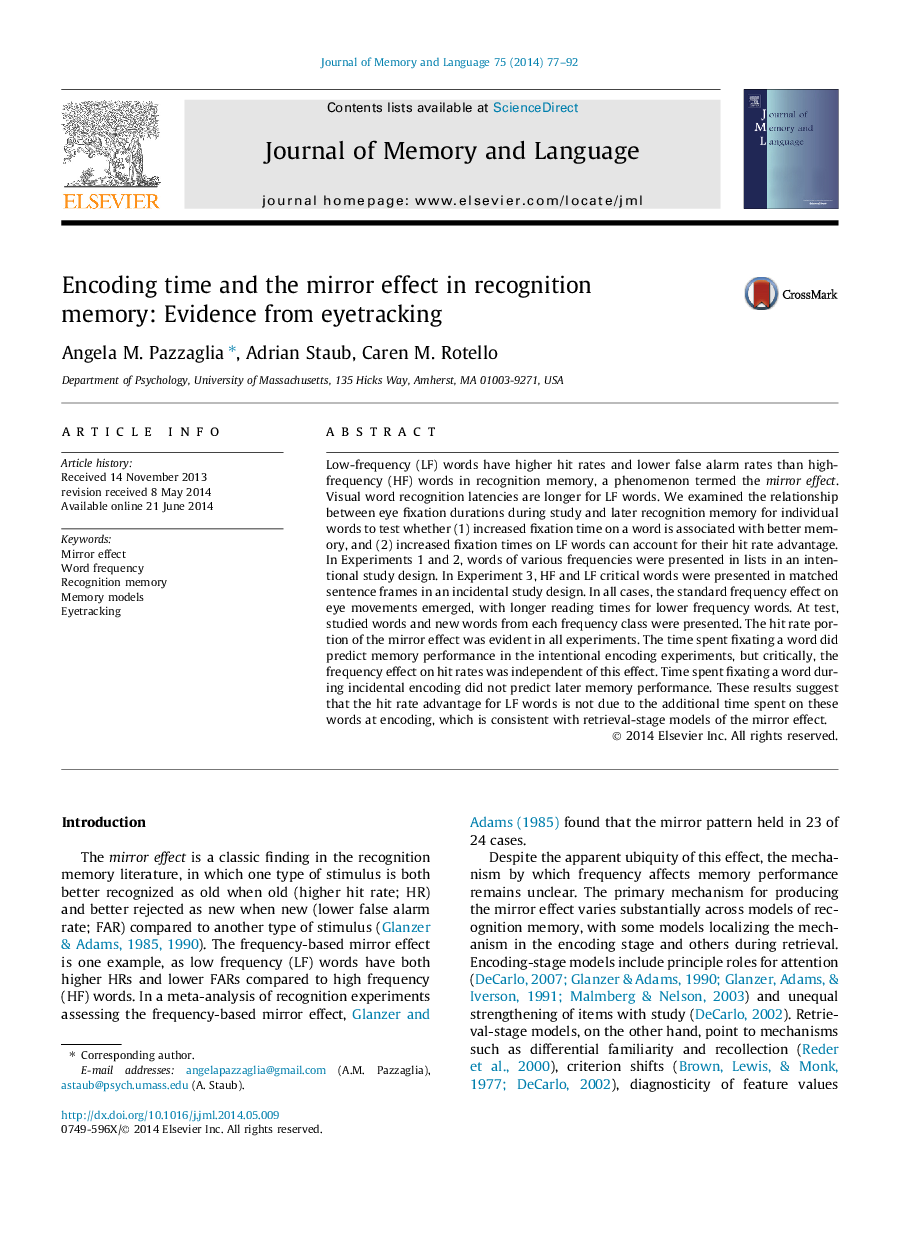| کد مقاله | کد نشریه | سال انتشار | مقاله انگلیسی | نسخه تمام متن |
|---|---|---|---|---|
| 931833 | 1474643 | 2014 | 16 صفحه PDF | دانلود رایگان |

• Relationships between encoding time and later recognition memory were examined.
• Eye fixation durations on words during intentional encoding predicted later memory.
• The memory advantage for low-frequency words was independent of fixation durations.
• Fixation durations during incidental encoding did not predict later memory.
• Encoding time does not explain the mirror effect, suggesting a retrieval mechanism.
Low-frequency (LF) words have higher hit rates and lower false alarm rates than high-frequency (HF) words in recognition memory, a phenomenon termed the mirror effect. Visual word recognition latencies are longer for LF words. We examined the relationship between eye fixation durations during study and later recognition memory for individual words to test whether (1) increased fixation time on a word is associated with better memory, and (2) increased fixation times on LF words can account for their hit rate advantage. In Experiments 1 and 2, words of various frequencies were presented in lists in an intentional study design. In Experiment 3, HF and LF critical words were presented in matched sentence frames in an incidental study design. In all cases, the standard frequency effect on eye movements emerged, with longer reading times for lower frequency words. At test, studied words and new words from each frequency class were presented. The hit rate portion of the mirror effect was evident in all experiments. The time spent fixating a word did predict memory performance in the intentional encoding experiments, but critically, the frequency effect on hit rates was independent of this effect. Time spent fixating a word during incidental encoding did not predict later memory performance. These results suggest that the hit rate advantage for LF words is not due to the additional time spent on these words at encoding, which is consistent with retrieval-stage models of the mirror effect.
Journal: Journal of Memory and Language - Volume 75, August 2014, Pages 77–92